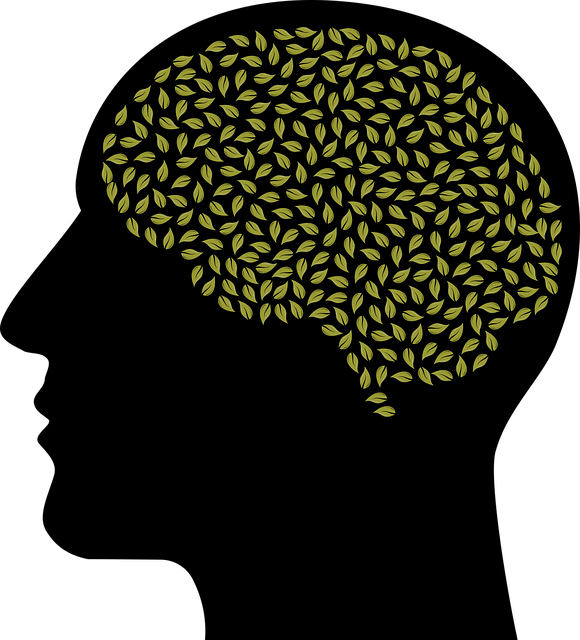The Lone Tree Bipolar Disorder presents unique mental health challenges, often going undiagnosed. Individuals experience extreme mood swings impacting daily life, relationships, and work. Specialized interventions like Resilience-focused Mindfulness (RFM) techniques and tailored exercises are incorporated by mental health professionals to stabilize symptoms and build resilience. The Resourceful Fostering Model (RFM) boosts emotional resilience through self-awareness exercises and structured interventions. Building resilience is key for managing bipolar disorder, enhancing coping mechanisms, and adaptability to life's challenges. Lone Tree Bipolar Disorder Therapy combines mindfulness, physical activity, and cultural competency training to offer comprehensive support, helping individuals navigate mental health storms with greater equilibrium.
“Uncovering the secrets to navigating Lone Tree Bipolar Disorder, this comprehensive guide explores innovative approaches to therapy through RFM (Resilience, Flexibility, and Mastery). By delving into the power of these principles, individuals can enhance emotional resilience, a key component in managing their mental health.
From understanding the unique challenges of the disorder to implementing practical exercises for daily life, this article provides valuable insights. We also delve into long-term strategies, offering a roadmap for sustained recovery and a fulfilling life.”
- Understanding Lone Tree Bipolar Disorder: A Unique Challenge
- The Role of RFM in Therapy: Enhancing Emotional Resilience
- Practical Exercises for Building Resilience in Daily Life
- Navigating the Journey: Long-Term Strategies for Sustained Recovery
Understanding Lone Tree Bipolar Disorder: A Unique Challenge

The Lone Tree Bipolar Disorder presents a unique challenge within the realm of mental health. Often undiagnosed and misunderstood, individuals grappling with this condition experience extreme mood swings, from euphoric mania to deep depression, seemingly disconnected from their surroundings. This disparity can be particularly acute when compared to more commonly recognized mental health disorders, adding an extra layer of complexity to therapy and treatment plans.
The impact on daily life can be profound, affecting relationships, work performance, and overall mental wellness. Recognizing the need for specialized interventions, mental health professionals are increasingly incorporating tailored exercises and RFM (Resilience-focused Mindfulness) techniques into their practice. These approaches aim not only to stabilize symptoms but also to foster resilience, enabling individuals with Lone Tree Bipolar Disorder to navigate life’s challenges with greater equilibrium and enhanced coping mechanisms.
The Role of RFM in Therapy: Enhancing Emotional Resilience

Resilience is a cornerstone of mental health, enabling individuals to navigate life’s challenges and overcome adversity. In the context of Lone Tree Bipolar Disorder Therapy, techniques such as RFM (Resourceful Fostering Model) play a pivotal role in enhancing emotional resilience. This approach focuses on cultivating self-awareness exercises that empower clients to recognize their inner strength and develop effective coping strategies.
Through structured interventions, RFM facilitates stress management workshops within the therapy setting, teaching participants valuable skills to manage and reduce stress levels. By integrating these practices into daily routines, individuals gain a sense of control over their emotional responses, fostering a more resilient mindset. This proactive approach not only complements traditional therapy but also equips clients with tools to build lasting inner strength, making them better equipped to handle the ups and downs associated with bipolar disorder.
Practical Exercises for Building Resilience in Daily Life

Building resilience is an essential aspect of mental well-being, especially for individuals managing conditions like bipolar disorder. Incorporating practical exercises into daily routines can significantly enhance coping mechanisms and overall adaptability to life’s challenges. One effective approach is practicing mindfulness, which involves focusing on the present moment without judgment. Simple techniques like deep breathing exercises or mindful meditation can help individuals manage stress and regulate emotions.
Additionally, engaging in regular physical activity is a powerful tool for resilience-building. Exercise releases endorphins, which improve mood and reduce anxiety. Whether it’s a walk in nature, joining a local sports team, or practicing yoga, these activities encourage a healthy mindset. For those dealing with bipolar disorder, combining such exercises with Lone Tree Bipolar Disorder Therapy and Mind Over Matter principles can offer comprehensive support. Healthcare Provider Cultural Competency Training also plays a vital role, ensuring professionals are equipped to guide patients toward enhanced resilience through tailored risk management planning for mental health professionals.
Navigating the Journey: Long-Term Strategies for Sustained Recovery

Navigating the journey towards resilience often requires a long-term perspective, especially for those managing bipolar disorder or similar mental health challenges. The path to recovery is rarely linear; it’s more akin to a winding forest trail, filled with twists and turns. Therefore, implementing effective strategies that foster adaptability and emotional stability is essential.
Self-Awareness Exercises and Trauma Support Services play pivotal roles in this journey. By cultivating heightened self-awareness, individuals can better recognize triggers and early warning signs of relapses. This proactive approach empowers them to implement coping mechanisms promptly, preventing depressive episodes or manic spikes. Over time, these practices contribute to enhanced resilience, enabling individuals to navigate life’s storms with greater ease and a deeper sense of equilibrium.
Lone Tree Bipolar Disorder presents a unique challenge, but with the right tools, individuals can navigate and overcome its impact. RFM therapy plays a pivotal role in enhancing emotional resilience, offering practical exercises that empower individuals to build resistance against mood episodes. By integrating these strategies into daily life, those affected can foster long-term recovery and find hope in managing their Lone Tree Bipolar Disorder effectively.









